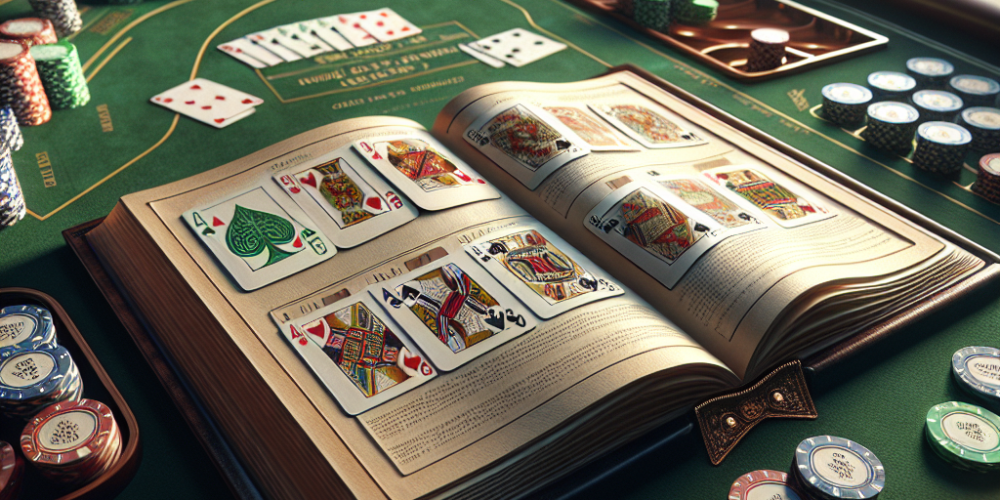Poker isn’t just a game of luck; it’s a strategic battle that requires skill, psychology, and a touch of mathematical prowess. Whether you are a novice eager to learn the ropes or a seasoned player aiming to enhance your gameplay, understanding the nuances of poker is paramount. This comprehensive guide will delve into effective strategies, essential techniques, and bankroll management tips to not only improve your poker skills but also increase your chances of walking away from the table as a winner.
Understanding Poker Variants and Basic Strategies
Poker offers several variants such as Texas Hold’em, Omaha, and Seven-Card Stud, each with its own set of rules and strategies. Texas Hold’em, often synonymous with poker, is a great starting point for beginners due to its straightforward rules and popularity. The basic strategy in Texas Hold’em focuses on the importance of position, starting hand selection, and the ability to read opponents.
1. Position: Being in a ‘late’ position (acting after most players) gives you the advantage of observing other players’ actions, which can inform your strategy.
2. Starting Hands: Knowing which hands to play is crucial. High pairs like AA, KK, QQ, and connectors such as AK or AQ have a higher probability of winning.
3. Reading Opponents: Pay attention to your opponents’ behavior and betting patterns. This can provide insights into the possible strength of their hands.
Advanced Poker Techniques
As you progress, incorporating more advanced techniques into your gameplay can give you an edge over less sophisticated players.
– Bluffing: Successful bluffing involves convincing your opponents you have a stronger hand than you actually do. It’s as much about picking the right moment as it is about how you play.
– Pot Odds and Outs: Understanding and calculating ‘pot odds’ and ‘outs’ is essential. This helps determine whether calling in a particular situation is profitable in the long run based on the potential size of the pot versus the cost of your call.
Poker Psychology
Poker is as much a mental game as it is one of chance and strategy. Emotional control and psychological tactics can profoundly affect the outcome.
– Avoid Tilt: Tilt is a state of emotional frustration that can cause players to make poor decisions. Recognizing when you are tilting and having strategies to cope with frustration can prevent costly mistakes.
– Table Image: Be aware of your image at the table. If you’re seen as a conservative player, you might find it easier to bluff. Conversely, if you’re perceived as loose, players might call your bets more frequently.
Bankroll Management
Effective bankroll management is critical in poker; it ensures that you play within your financial limits and can handle the inherent variance in the game.
– Set Limits: Decide on fixed buy-in limits and stick to them. Risking more than you can afford can lead to rash decisions.
– Understand Variance: Even the best players experience periods of losses due to the game’s unpredictable nature. Ensuring that your bankroll can withstand these swings is crucial.
Enhancing Your Winning Chances
Aside from strategic know-how, enhancing your chances of winning at poker also involves practical steps.
– Continuous Learning: The world of poker strategy is deep and constantly evolving. Stay updated with the latest strategies and revisit fundamentals regularly.
– Practicing: Whether through online platforms, friends, or local tournaments, practice is indispensable. Each hand you play, whether you win or lose, can contribute to your growth as a player.
– Networking with Other Players: Engaging with a community of poker players can provide insights and expose you to different styles of play and strategies.
Conclusion
Poker offers a thrilling mix of strategy, psychology, and luck. By mastering these aspects and continually adapting your strategy, you can significantly enhance your gameplay and increase your profitability. Remember, each session is a part of a larger journey in poker mastery. Keeping a level head and a clear strategy will set you on the path to success at the poker table. Whether your next game is a casual encounter with friends or a high-stakes tournament, these tips and strategies will help sharpen your skills and improve your chances of claiming victory.

David Garato is a luminary in gaming journalism, renowned for peeling back the curtain on the gaming world with his witty and insightful commentary. A decade into weaving stories from the pixelated edges of indie games to the expansive universes of AAA titles, David’s work is a thrilling blend of analysis and adventure. When not writing, he’s live-streaming, sharing his gaming exploits with an engaged and growing audience. David doesn’t just write about games; he lives them, making him a trusted guide in the gaming community.


